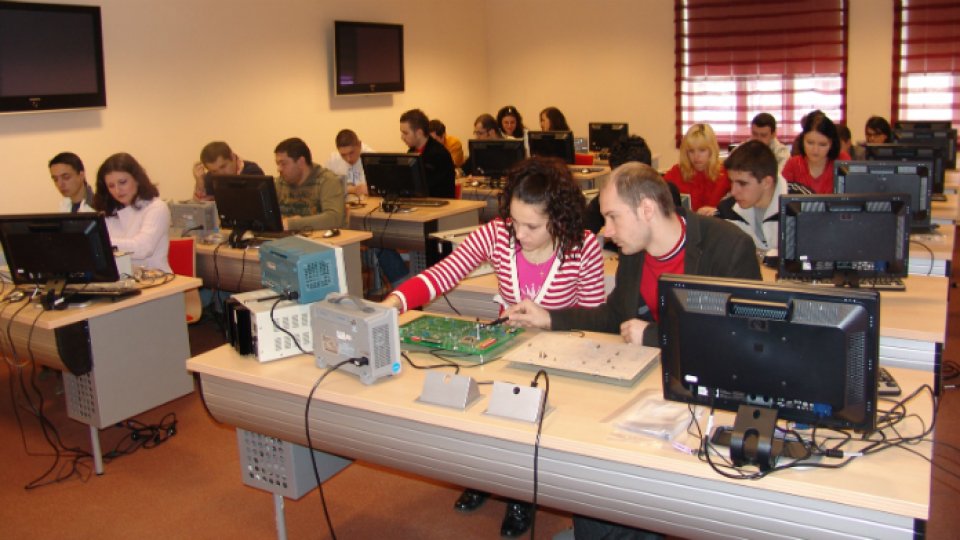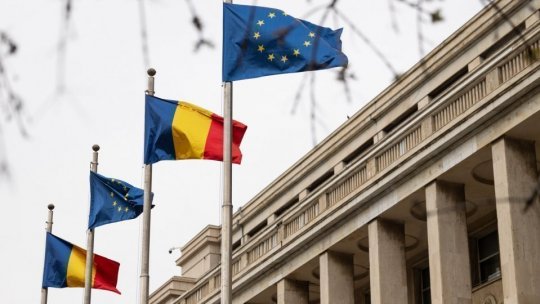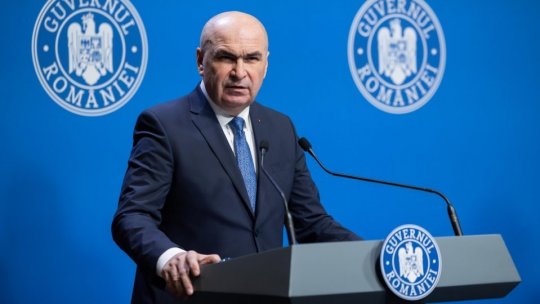First EIB support for higher education in Romania
UPB Rector Mihnea Costoiu: “It is a great honor for us to be the first Romanian university to be supported by the European Investment Bank.

Articol de Florin Lepădatu, 10 Iulie 2019, 23:50
European Investment Bank (EIB) has agreed to provide €25m to increase the quality, efficiency and effectiveness of teaching, learning and research at the Polytechnic University of Bucharest (UPB), a leading university in Romania.
EIB loan will finance the UPB campus redevelopment plan involving construction of a new building to accommodate three faculties currently located on the historic Polizu campus. Aim is to regroup the faculties located at Polizu on the Noul Local Campus and to upgrade the facilities to a standard with which they can best support teaching, learning and research activities of the university.
Agreement is backed by the European Fund for Strategic Investments (EFSI), the heart of the Investment Plan for Europe, also known as “Juncker Plan”. Under this plan, EU bank and European Commission cooperate to increase EIB's risk bearing capacity, thereby improving its product offer and enhancing the impact projects can achieve.
European Commissioner for Research, Science and Innovation, Carlos Moedas: “Great science and research starts with great education. This is an investment in the future researchers of Romania, ultimately driving innovation and creating jobs and growth. This is another example of the Juncker Plan at work”.
EIB Vice-President Andrew McDowell: “This is the first EIB support to improve higher education in Romania. We have joined our forces with the European Commission benefitting from the Investment Plan for Europe to increase the quality of university education that is crucial for strengthening the competitiveness of Romania and future development of the country. I am convinced, that more similar EIB operations will follow this project that will improve study conditions for 5,000 students and PUB research activities”.
UPB Rector Mihnea Costoiu: “It is a great honor for us to be the first Romanian university to be supported by the European Investment Bank. Being the largest technical university in Romania and with an important proportion of smart specialization and tech graduates entering the workforce market, the project will support not only national education but also the national economy. We also hope to make this a good practice model for other universities that will implement similar projects. In addition, thanks to the guarantee offered by the Investment Plan for Europe, our university will be able to extend its research abilities in order to have a positive impact on society. With the university in its 200th year, this is the perfect celebration for our community, and we thank EIB and the EFSI for making this upgrade possible”.
European Investment Bank (EIB) is the European Union's bank. It is the long-term lending institution of the EU and is the only bank owned by and representing the interests of the European Union Member States. It makes long-term finance available for sound investments in order to contribute towards EU policy goals. EIB works closely with other EU institutions to implement EU policy. As the world's largest multilateral borrower and lender by volume, EIB provides finance and expertise for sound and sustainable investment projects which contribute to furthering EU policy objectives. More than 90% of EIB activity is focused on Europe but the Bank also supports the EU's external and development policies.
Investment Plan for Europe, known as the Juncker Plan, is one of the European Commission's top priorities. It focuses on boosting investment to generate jobs and growth by making smarter use of new and existing financial resources, removing obstacles to investment, and providing visibility and technical assistance to investment projects. European Fund for Strategic Investments (EFSI) is the main pillar of the Juncker Plan and provides first loss guarantees, enabling the EIB to invest in more projects that often come with greater risks. EFSI has already yielded tangible results. The projects and agreements approved for financing under EFSI are expected to mobilize about EUR 408.4bn in investments and support some 952 000 SMEs in the 28 EU countries.
Source:European Commission Press Room













